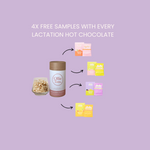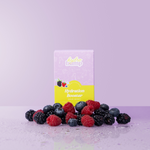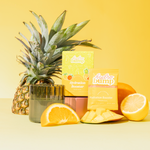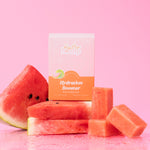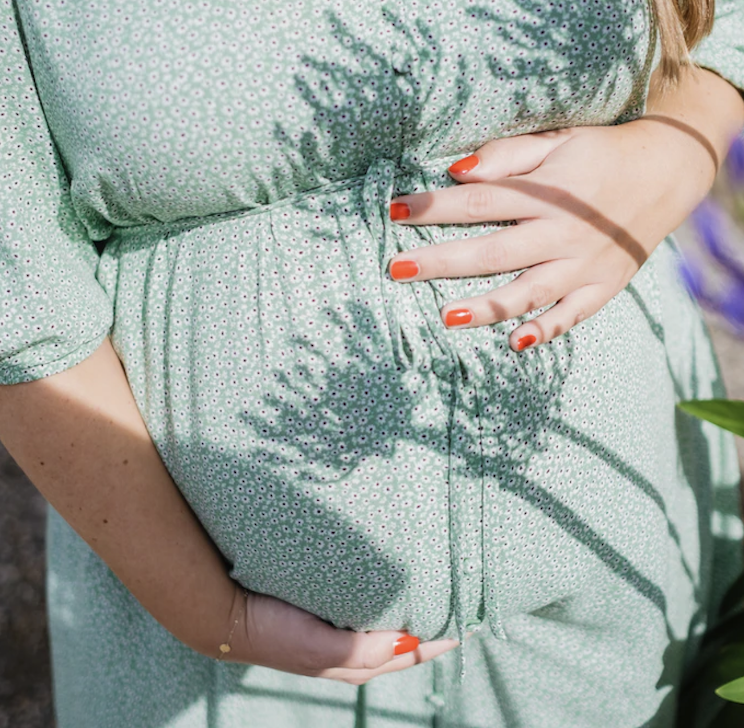Introduction
Staying optimally hydrated during pregnancy is critically important for both mum and baby. As the baby grows, the body requires more fluids to support them, the amniotic fluid, and increased blood volume. Drinking enough water helps transport nutrients, remove waste, and regulate body temperature.
Electrolyte balance is also crucial in this process. Electrolytes like sodium, potassium, calcium, and magnesium help maintain fluid balance and ensure proper muscle function. If there's an imbalance of these electrolytes, it can potentially lead to problems such as muscle cramps, high blood pressure, and even preterm labor.
Key takeaway: Staying hydrated with pregnancy-safe drinks is crucial for a healthy pregnancy. Ensuring an adequate intake of water and electrolyte-rich fluids can aid in preventing dehydration and its associated potential risks.
Understanding Dehydration During Pregnancy
Common Signs of Dehydration
Recognizing the signs and symptoms of dehydration during pregnancy is crucial for maintaining your health. Some common indicators include:
- Dizziness: Feeling lightheaded or dizzy can be an early sign that you're not getting enough fluids.
- Dry Mouth: A persistent dry or sticky feeling in your mouth can point to inadequate hydration.
- Fatigue: Unusual levels of tiredness or exhaustion could result from insufficient fluid intake.
Factors Contributing to Dehydration
Several factors can increase the risk of dehydration in pregnant women:
- Morning Sickness: Frequent vomiting can lead to significant fluid loss, making it harder to stay hydrated.
- Hyperemesis Gravidarum: A severe form of morning sickness that causes extreme nausea and vomiting, leading to substantial fluid depletion.
- Diarrhea: Gastrointestinal issues like diarrhea can also contribute to rapid fluid loss, exacerbating dehydration risks.
Risks Associated with Dehydration
Severe dehydration can pose serious health risks during pregnancy, impacting both the mother and the developing fetus.
This underlines the importance of maintaining adequate hydration throughout pregnancy.
The Role of Electrolytes in Maintaining Hydration During Pregnancy
Proper hydration during pregnancy isn't just about water intake; it's about maintaining the right balance of electrolytes. These essential minerals play a significant role in keeping both the mother and the developing fetus healthy.
Key Electrolytes Needed During Pregnancy
Here are the primary electrolytes crucial for pregnancy:
- Sodium: Maintains fluid balance and supports nerve function.
- Potassium: Regulates muscle contractions and heart function.
- Calcium: Vital for bone health and muscle function.
- Magnesium: Aids in energy production and helps relax muscles.
How Electrolytes Regulate Fluid Balance and Muscle Function
Electrolytes are critical in regulating fluid balance. They help your body retain necessary fluids while eliminating excess amounts. This balance is particularly important during pregnancy when fluid needs increase due to expanded extracellular fluid space and fetal development demands.
Sodium and Potassium
These electrolytes work together to maintain cellular fluid balance. Sodium helps retain water, while potassium ensures cells do not become overly saturated with water, thus preventing swelling.
Calcium and Magnesium
Both of these electrolytes play a crucial role in muscle function, including the uterus. Adequate levels can help prevent muscle cramps and support smooth contractions during labor.
Maintaining proper electrolyte levels is essential for preventing complications such as dehydration, which can lead to severe issues. Consuming foods rich in these electrolytes or using safe electrolyte drinks can make a significant difference.
By understanding the role of key electrolytes, you can make informed choices about hydration during pregnancy, ensuring both you and your baby remain healthy with the help of your healthcare professional.
Best Hydration Drinks for Pregnant Women
- Electrolyte Drinks: Safe Options for Pregnant Women
Electrolyte drinks can be a game-changer during pregnancy, providing essential minerals and vitamins that help maintain hydration and support overall health. These options are particularly beneficial in cases of morning sickness or hyperemesis gravidarum, where significant fluid loss occurs.
Benefits of Using Hydration Boosters Over Plain Water:
- Better Absorption: Specifically formulated hydration boosters for pregnant and breastfeeding women, such as HydroBump, contain a precise balance of sodium, potassium, and glucose that enhances water absorption in the intestines.
- Faster Rehydration: The optimal mix of electrolytes ensures quicker restoration of fluid balance, reducing symptoms like dizziness and fatigue more effectively than plain water.
- Convenient Packaging: Many electrolyte drinks, such as HydroBump, come in easy-to-carry sachets or bottles, making them practical for on-the-go hydration.
These types of products ensure that you stay hydrated while maintaining a balance of essential nutrients.
- Coconut Water: A Natural Hydration Booster
Coconut water is a safe hydration drink for pregnancy because it has a lot of nutrients and natural electrolytes. This refreshing drink contains important electrolytes like potassium, sodium, and magnesium, which are necessary for keeping fluids balanced and helping muscles work properly.
Benefits of Coconut Water During Pregnancy
- Natural Electrolyte Content: Coconut water has a good mix of electrolytes, making it an effective option for replenishing lost fluids.
- Hydration: Its high water content helps keep you hydrated without the added sugars or artificial ingredients found in some commercial drinks.
- Taste Preferences: Many pregnant women appreciate the mild, slightly sweet flavor of coconut water, which can be more palatable than plain water when experiencing morning sickness.
Drinking coconut water can help you stay hydrated and improve your overall health during pregnancy.
- Homemade Electrolyte Solutions: DIY Recipes for Expecting Mothers
Creating your own electrolyte drinks at home can be an excellent way to ensure you're consuming safe hydration drinks during pregnancy. This approach allows you to control the ingredients, avoiding added sugars and artificial flavors commonly found in commercial options.
Simple Recipes Using Natural Ingredients
Here are a few easy-to-make recipes using natural ingredients:
- Lemon Honey Electrolyte Drink
- Ingredients:
■ 1 cup of water
■ Juice of 1 lemon
■ 1 tablespoon of honey
○ A pinch of sea salt
○ Instructions: Mix all ingredients together until well combined. Serve chilled or at room temperature.
- Coconut Lime Electrolyte Drink
- Ingredients:
■ 1 cup of coconut water
■ Juice of 1 lime
○ A pinch of sea salt
○ Instructions: Stir the coconut water and lime juice together, then add a pinch of sea salt. Mix well and enjoy.
- Orange Ginger Electrolyte Drink
- Ingredients:
■ 1 cup of water
■ Juice of 1 orange
■ 1 teaspoon of grated ginger
○ A pinch of sea salt
○ Instructions: Combine all ingredients and stir thoroughly. You can strain out the ginger if desired, or leave it in for added flavor.
Importance of Avoiding Added Sugars and Artificial Flavors
When making homemade electrolyte drinks, it's crucial to focus on using natural ingredients. Added sugars and artificial flavors not only add unnecessary calories but can also lead to spikes in blood sugar levels, which is not ideal during pregnancy.
Choosing homemade solutions can help you maintain a balanced intake of essential electrolytes like sodium and potassium while keeping your hydration levels optimal. These DIY electrolyte drinks for pregnancy offer a customizable and healthier alternative to store-bought options.
Creating your own beverages ensures that you are aware of every ingredient, promoting safe electrolyte drinks for pregnancy that cater specifically to your needs.
- Nutrient-Rich Foods: Nature's Hydration Helpers During Pregnancy
Choosing safe hydration drinks for pregnancy is essential, but incorporating foods rich in electrolytes can also play a significant role in maintaining fluid balance.
Fruits and Vegetables
Certain fruits and vegetables are particularly effective at boosting hydration levels:
- Bananas: Rich in potassium, they help regulate fluid balance.
- Oranges: High in vitamin C and water content, they support overall hydration.
- Leafy Greens like Spinach: Packed with magnesium and calcium, essential for muscle function and fluid regulation.
These foods are not only hydrating but also provide necessary nutrients that support both the mother and the developing fetus.
Dairy Products
Dairy products offer another source of hydration and essential nutrients:
- Milk and Yogurt: Contains calcium and electrolytes which are vital during pregnancy. They also provide hydration benefits.
However, it's important to consume dairy products in moderation. Some pregnant women may experience lactose intolerance, leading to digestive issues. In such cases, lactose-free alternatives or other calcium-rich options might be preferable.
Incorporating these nutrient-rich foods alongside safe electrolyte drinks can enhance overall hydration strategies during pregnancy.
Tips to Prevent Dehydration While Pregnant
Maintaining adequate fluid intake is essential during pregnancy. Here are some practical tips to help you stay hydrated:
- Carry a Water Bottle
Keeping a water bottle with you at all times can serve as a constant reminder to drink. Opt for a reusable bottle with measurement markings so you can track your daily intake.
- Set Reminders
Use your phone or a hydration app to set regular reminders to drink water throughout the day. This helps ensure you don’t forget, especially if you're busy.
- Drink Small Amounts Frequently
Instead of drinking large amounts at once, sip small amounts of water regularly. This can also help if you're dealing with nausea or morning sickness.
- Choose Hydrating Foods
Incorporate water-rich foods into your diet. Fruits like watermelon and cucumbers are excellent choices that can contribute significantly to your overall hydration.
- Flavor Your Water
If plain water doesn’t appeal to you, try adding natural flavors like lemon slices, mint leaves, or cucumber. This can make drinking water more enjoyable.
- Monitor Your Urine Color
A useful indicator of hydration levels is the color of your urine. Aim for a light straw color; darker shades may indicate dehydration.
- Hydrate Before Meals
Drinking a glass of water before meals not only aids digestion but also ensures you're consistently hydrating throughout the day.
By integrating these strategies into your daily routine, you can effectively manage your hydration levels during pregnancy.
When should you seek medical advice regarding hydration issues during pregnancy?
Understanding the effects of dehydration during pregnancy is crucial. There are specific situations where professional consultation becomes necessary:
- Severe Morning Sickness
Persistent vomiting can lead to significant fluid loss, making it challenging to maintain hydration levels. If you experience severe morning sickness that impacts your ability to keep fluids down, seeking medical advice is essential.
- Persistent Diarrhea
Diarrhea can rapidly deplete your body's water and electrolyte stores. If diarrhea persists, it can hinder proper hydration and lead to complications. Consulting with a healthcare provider ensures that you receive appropriate treatment and hydration strategies.
- Signs of Severe Dehydration
Symptoms like extreme dizziness, rapid heartbeat, fainting, or confusion indicate severe dehydration. Immediate medical attention is necessary in these cases to prevent serious health risks.
- Underlying Health Conditions
Conditions such as hyperemesis gravidarum (extreme nausea and vomiting) or gestational diabetes require careful monitoring of hydration status. Your healthcare provider can offer tailored advice and interventions.
Consulting your healthcare provider helps address these concerns promptly, ensuring the health and well-being of both you and your developing baby.
Conclusion: Stay Refreshed with Safe Drinks During Your Pregnancy Journey!
Staying hydrated is essential for a healthy and comfortable pregnancy. By incorporating safe hydration drinks like electrolyte solutions, coconut water, and homemade recipes, you can effectively maintain your fluid balance.
Key Points to Remember:
- Consult Healthcare Professionals: Personalized advice from healthcare providers ensures you meet your specific hydration needs safely.
- Choose Electrolyte Drinks Wisely
- Natural Options: Consider nutrient-rich foods and natural drinks to boost hydration levels.
Maintain your health by making informed choices and staying refreshed during pregnancy. Always prioritize consultation with your healthcare provider for tailored hydration strategies.





